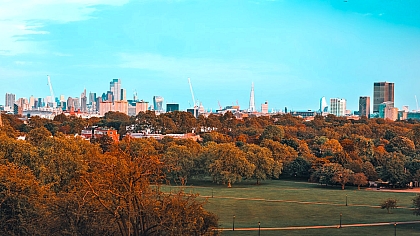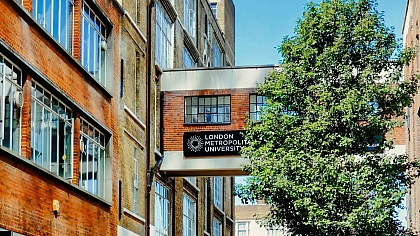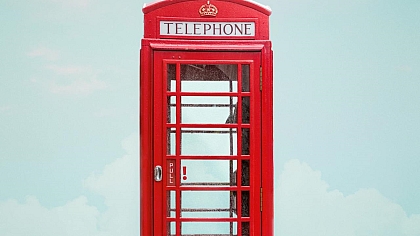
Thrifting & Eco-friendly Ways to Practice Sustainable Living
London is a treasure trove for thrifting and eco-friendly living, making it the perfect city to embrace sustainable practices. From charming vintage shops in Notting Hill to hidden gems in Shoreditch, thrifting offers a unique opportunity to find one-of-a-kind clothing and home goods while reducing waste. Many local boutiques prioritize eco-friendly practices, showcasing items made from recycled materials or offering upcycled furniture.
Additionally, London hosts various community events and markets focused on sustainability, where you can learn about zero-waste living and connect with like-minded individuals. By choosing to thrift and support sustainable businesses, you not only contribute to a healthier planet but also enrich your London experience with character and style, all while saving money.
Making the personal decision to be eco-friendly is commendable, especially in today's world. While debates and arguments continue, there is no real way to dispute the science. Evidence shows that wasteful actions impact the planet negatively.
Thrifting and adopting eco-friendly practices are integral to sustainable living, offering Londoners innovative ways to reduce environmental impact while embracing unique fashion finds and household treasures. In London, thrift stores and vintage markets like Camden Market and Portobello Road provide a treasure trove of pre-loved items, from clothing to furniture, encouraging a circular economy and reducing waste.
Embracing sustainable habits such as upcycling old garments or opting for reusable alternatives like eco-friendly bags and containers further promotes a greener lifestyle in the bustling urban environment of London.
By integrating thrifting and eco-conscious choices into everyday routines, London residents can contribute positively to environmental conservation while discovering the city's diverse and vibrant sustainable living community.
The importance of doing our part to lessen our environmental burden cannot be overstated. Here are some ways that you can make a difference as a citizen of the world.
Eco-friendly Living is a Way of Life
Practical ways to be greener and make a positive difference go beyond buying sustainably and recycling. It is a way of life where everything you do has to change, from what you eat to the clothes you buy. Fortunately, there are numerous easy and practical ways to adopt sustainable practices in our everyday lives. Here are some of them:
Practice Thrifting
One of the simplest and most effective ways to reduce waste and promote sustainability is through thrifting. Thrifting involves buying items, primarily clothes (although anything can be thrifted), second-hand. Practising thrifting is sustainable in two ways: it helps you reduce purchasing brand-new items and is a form of recycling. Not only does this save money, but it also prevents perfectly usable items from ending up in landfills.
Many people who look to save money consider shopping at thrift stores, consignment shops, or online platforms. Anyone can quickly start up a thrift store, and it is a profitable business if you know how to do it right.
Carpooling and Using Public Transportation
Carpooling is a practice that falls in and out of favour, and most people look down on public transportation. However, vehicular activity is a significant contributor to carbon emissions. Many of the cars on the road at any given moment are carrying one or two passengers at a time. On the other hand, public transportation uses all available seating, which brings down the average emissions produced by the vehicle.
Carpooling or ride-sharing has the same benefit as making the most of cars and reducing CO2 emissions by curbing unnecessary road usage. By carpooling or using public transportation, you can reduce your carbon footprint and save money on fuel costs.
Recycling and Proper Waste Disposal
The mantra “reduce, reuse, and recycle” holds immense value in sustainable living. Recycling is the most well-known aspect of eco-friendly living, but many still overlook its importance. Recycling is vital for both the environment and individuals. It lowers dependence on deforestation, mineral extraction, and extractive activities. All of these operations severely contaminate our planet’s air and water.
Recycling also cuts greenhouse gas emissions and saves electricity. These factors add up to aid in the fight against climate change. Global landfills are increasingly filled with worn rubber tyres, junk mail, outdated bottles, and scrap cars.
These and other materials, such as paper, plastic, glass, and aluminium, are difficult to degrade and harmful to produce. Proper waste disposal is crucial to preventing pollution and preserving natural resources. Additionally, landfills significantly contribute to environmental degradation and increase air and water pollution.
Energy Conservation
Simple acts like turning off lights and unplugging electronic devices when not in use conserve energy. Saving on the electricity bill is a smart move and an essential step in eco-friendly living. Going further, you can buy energy-efficient appliances and light bulbs if you can adjust your thermostat to save energy.
Transitioning to renewable energy sources is crucial for reducing your carbon footprint.
Consider installing solar panels on your property, or if that is not feasible, support renewable energy providers by changing your electricity supplier. Many companies now offer renewable energy options, allowing you to support the shift towards a cleaner, more sustainable future. Also, you will enjoy energy rebates when you take active steps to reduce utility bills.
Water Conservation
The same principle of conserving resources applies to water usage. Water is a precious resource, and it is easy to take for granted what access to clean water means. Estimates show that at least a quarter of the world’s population does not have access to clean, drinkable water. In your homes, the steady drip of that leaking faucet may result in hundreds of gallons wasted yearly. So, fix leaking taps and pipes promptly and take shorter showers. If possible, install water-saving devices such as low-flow showerheads and faucet aerators.
Making Sustainable Food Choices
The food we consume has a significant impact on the environment. Learn to source locally grown, organic, and seasonal produce whenever possible. It will be more expensive to purchase from local farmers, but it is worth it. It reduces carbon emissions from transportation and promotes sustainable farming practices.
Reduce Frivolous Spending
Before making a new purchase, consider whether you truly need the item. Embrace a minimalist mindset and prioritize quality over quantity. Repurposing things instead of throwing them away saves money and is commendable. For example, repurposing glass jars for storage or using old outing clothes as home clothes. It is important to remember that no effort is too small. Each eco-friendly choice has an impact and contributes to a greener and more sustainable planet.
Promote Eco-friendly Living
Eco-friendly living is not a boring or drab life. Eco-friendly practices do not mean you can not enjoy things, so share with others and inspire them to make positive changes. You can start conversations about sustainability and participate in community initiatives.
By educating and inspiring others, you can create a ripple effect and encourage the widespread adoption of eco-friendly practices. It is worth noting that the overwhelming majority of harm done to the environment is caused by commercial activity. Still, we have to take responsibility for our actions and embrace a lifestyle that prioritizes the well-being of our planet.
Eco-friendly living and reducing our environmental impact is not as daunting as it may seem. By making eco-friendly practices our way of life, we can make a significant difference in preserving the planet for future generations. We can create a positive impact and pave the way for a brighter and greener future.











